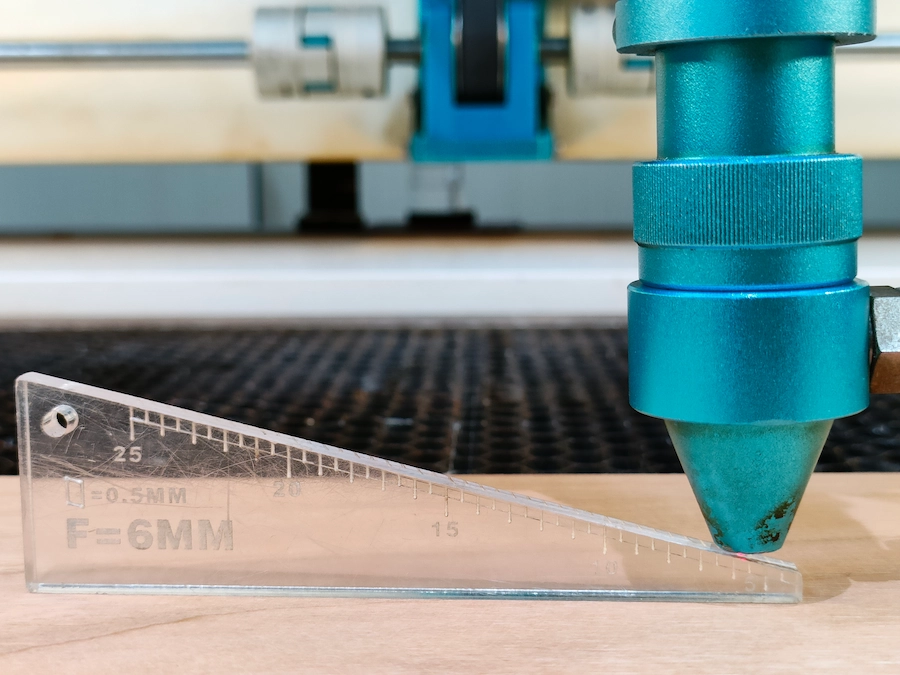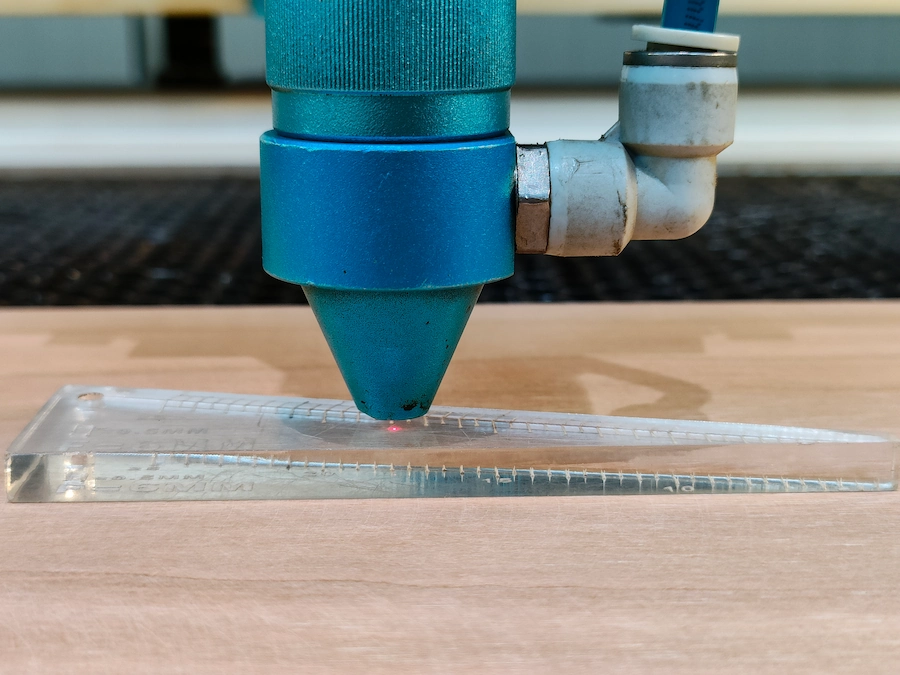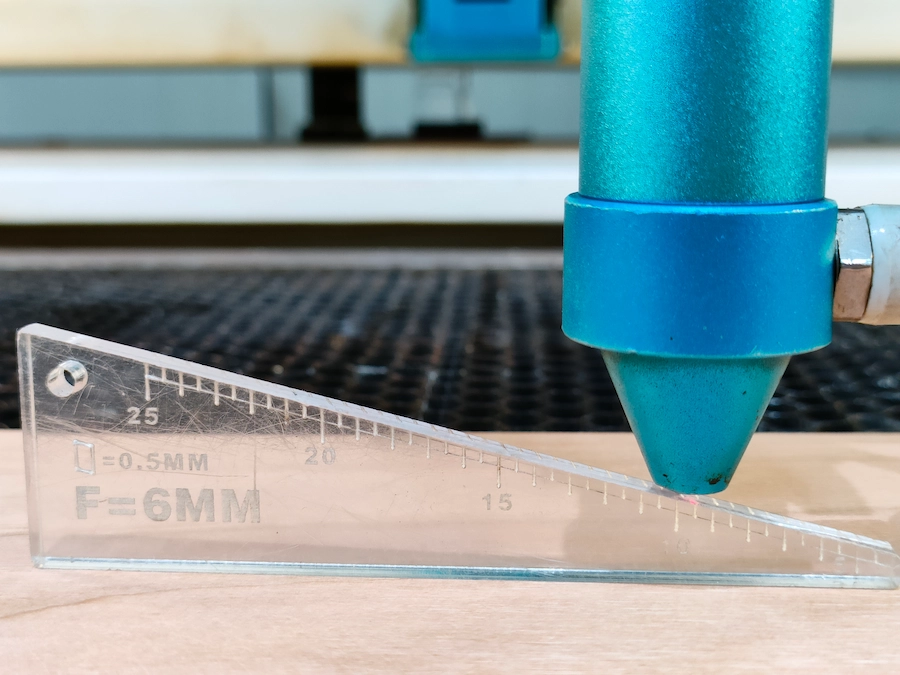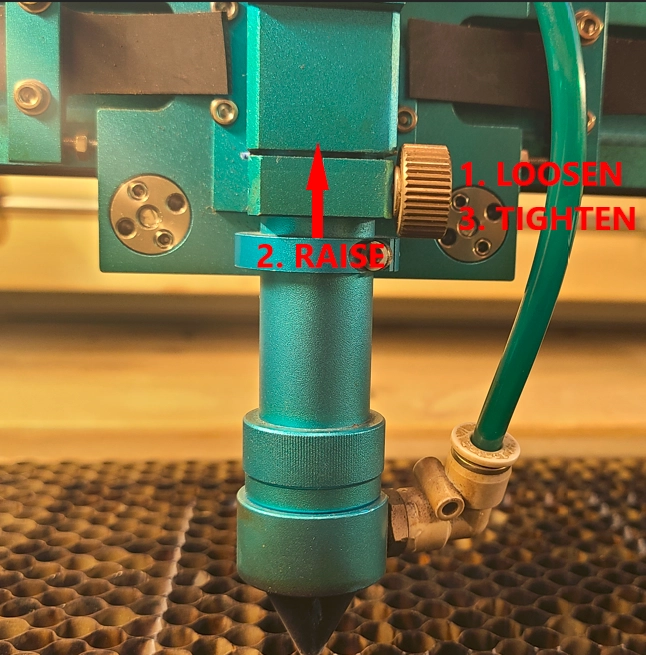Compared with auto focus, manual focus has the advantages of being faster and can be used in more flexible scenarios.
Manual focus does not require a dedicated manual focus button. It needs rather a focal stick.
What’s a Focal Stick?
Focal stick is a triangle with measurements, usually made of durable 5mm acrylic.

How to Use the Focal Stick?
For 2″ laser head, the focal stick should be used by placing its longer right-angled edge on the material and adjusting the nozzle to touch the 5mm scale.
And there is another quicker way: flat your focal stick on the material, and adjust the nozzle to touch the 5mm stick’s surface.


Adjusting the nozzle to 5mm
Adjusting the nozzle to the flat stick
For 4″ laser head, the focal stick should be used by placing its longer right-angled edge on the material and adjusting the nozzle to touch the 10mm scale.

For objects processed with the rotary, check that the object is leveled first. Then select the focus method based on the laser head model.
How to Adjust the Focal Stick?
1. If you need to add or remove the rotary or replace the laser head, raise or lower the plate to the proper position.
2. Put the material in the right place, then put the focal stick on the material.
3. Loose the brass knob, let your laser head and nozzle touch the focal stick. Tighten the knob as it’s adjusted.

When to use Manual Focus:
1. Rotary jobs – The shape of the rotary machine and tumblers do not work with the sensors. So it’s time for manual focus to come in handy.
2. If not using the stock 2″ head. Manual Focus can work with the 4″ laser head, which auto focus can’t do.
3. Odd shaped objects that have varying thicknesses or are warped\wavy. Using manual focus in the local area you wish to engrave is a nice choice.
4.The material is transparent, such as clear cast acrylic. Infrared light of auto focus passes through transparent materials and does not work, while while manual focus works fine.
5.When you need to control the distance of defocus, let the nozzle hit the scales on manual stick.
6.Other cases when the sensors are misaligned or not functioning correctly.


.png) International
International
 United States
United States
 Brasil
Brasil
 Canada
Canada
 Costa Rica
Costa Rica
 Česká
Česká
 Ελλάδα
Ελλάδα
 Polska
Polska
 Ireland
Ireland
 Portugal
Portugal
 Lietuva
Lietuva
 Россия
Россия Deutschland
Deutschland
 Britain
Britain
 Україна
Україна
 France
France
 Sverige
Sverige
 Italia
Italia
 Norway
Norway
 Denmark
Denmark
 Romania
Romania
 한국
한국
 中国
中国
 ประเทศไทย
ประเทศไทย
 中国香港
中国香港
 Israel
Israel
 中國臺灣
中國臺灣
 India
India
 پاکستان
پاکستان
 پශ්රී ලංකා
پශ්රී ලංකා
 Australia
Australia
 New Zealand
New Zealand
 South Africa
South Africa